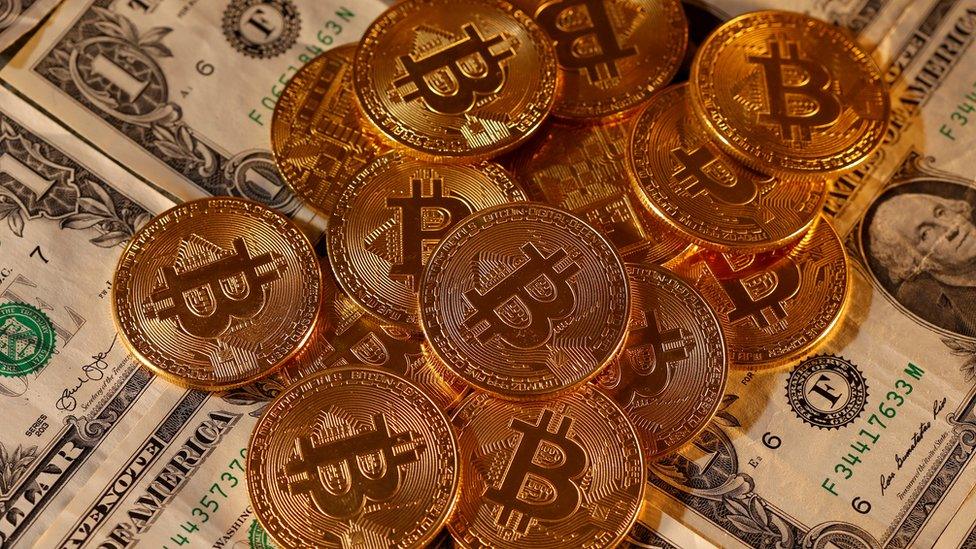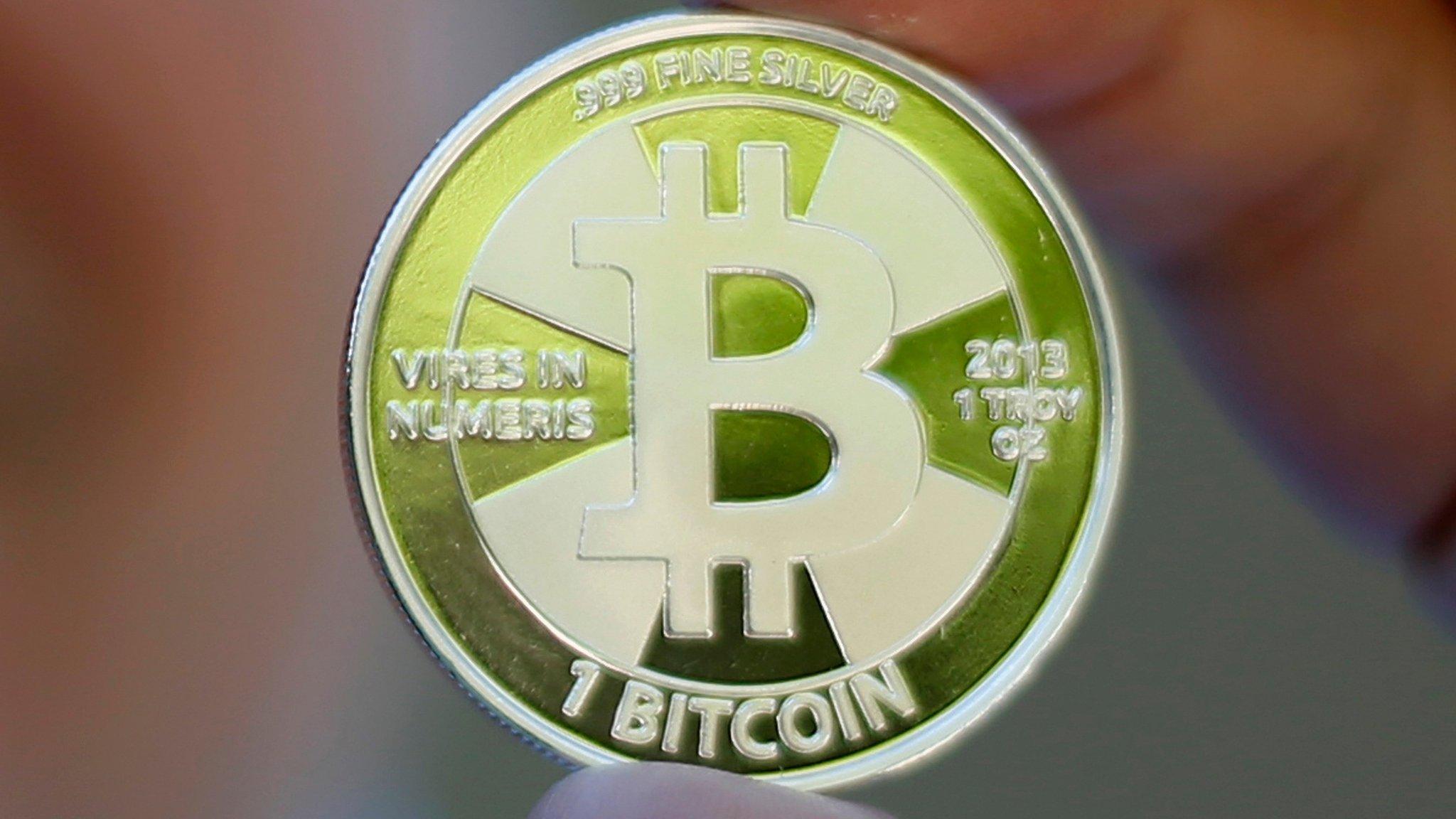Bitcoin: $1bn address with Silk Road links 'being transferred'
- Published

Almost $1bn (£772m) in Bitcoin linked to the notorious Silk Road website is being transferred, analysts say.
The Silk Road was an online black market, selling everything from drugs to stolen credit card information and murderers-for-hire.
It was shut down by the US government in 2013.
It's unclear whether the transaction is being made by the owner of Silk Road, law enforcement or hackers.
Blockchain trackers Elliptic and Ciphertrace reported that about 69,370 bitcoins were moved from an account believed to originate from the Silk Road.
This online wallet is the world's fourth-richest Bitcoin address, according to website BitInfoCharts.
Who's responsible?
Criminals with access to the wallet could be moving the money - either to cash in the funds or to keep them safe, if the original account was compromised by hackers.
But law enforcement agencies may have also accessed the account, either through a hack or with the co-operation of a criminal with access to the wallet.
In 2015, Bitcoin seized from a different wallet associated with Silk Road was sold at auction by the US government.
The US Department of Justice has been contacted for comment.
The BBC's Rory Cellan Jones explains how Bitcoin works
Dr. Tom Robinson, co-founder of Blockchain analysts Elliptic, detailed the findings and said the account had been dormant since 2015.
"Blockchain analytics shows these funds originated from a wallet linked to the Silk Road back in 2012," he told the BBC.
Silk Road creator Ross Ulbricht is currently serving two life sentences in prison after being found guilty of money laundering, computer hacking, and conspiracy to traffic narcotics.
Moving funds
"The movement of these bitcoins ... may represent Ulbricht or a Silk Road vendor moving their funds," Dr Robinson wrote in a post on Elliptic's website, external.
"However it seems unlikely that Ulbricht would be able to conduct a Bitcoin transaction from prison."

Silk Road's creator Ross William Ulbricht is in jail
"There is some speculation that the wallet could have been cracked by hackers," Blockchain analysts Ciphertrace said in its report, external.
"These movements could possibly mean that the wallet owner is moving funds to new addresses to prevent hackers from accessing the wallet.dat file, or that hackers have already cracked the file."
The account has been circulating among hackers trying to break into the wallet since early September, Alon Gal, chief technology officer of cybercrime intelligence company Hudson Rock said.
Bitcoin prices have been rising to their highest levels since January 2018, selling above $13,000 (£10,044) since Friday.
Prof Alan Woodward, a computer scientist from Surrey University, said it was "highly likely" to be either the criminals involved in Silk Road or law enforcement agencies.
"It's been sitting there for such a long time that if the criminals were ever going to cash out they might as well try now," he added. "They know very well it's being watched, but they also know that we live in turbulent times where the authorities have their hands full with major world events. They might be hoping they can slip under the radar."
But David Gerard, author of Attack of the 50 Foot Blockchain said it would be difficult to sell on such a large amount of Bitcoin.
"I'm not sure the crook could cash out now, both because of the size of the stash, and because everyone is watching," he said.
"That's the trouble with Bitcoin - if you're going to do drug crimes worth millions of dollars, then you probably shouldn't do them on a permanent immutable public ledger.
"Bitcoin is completely traceable, and everyone can follow the hot bitcoins."
- Published13 November 2015

- Published30 May 2015

- Published27 April 2015

- Published27 February 2024

- Published5 February 2015
